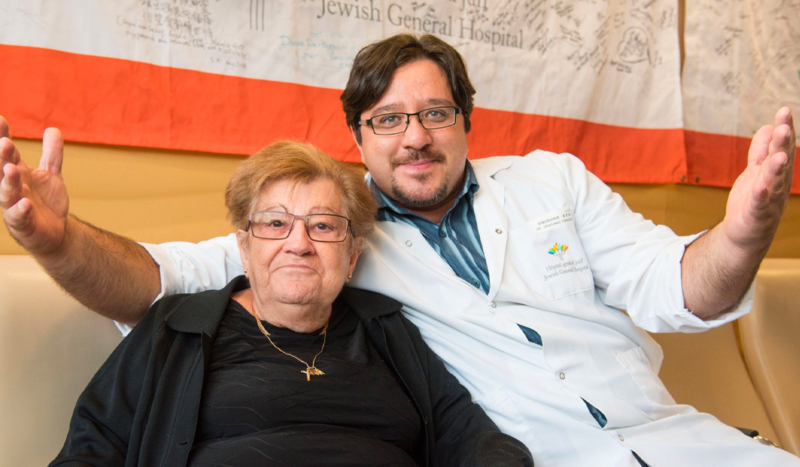
Fondation de I'HGJ / Facebook
CV NEWS FEED // A Catholic oncologist in Canada recently shared the story of his life’s work in the April issue of Traces, the official publication of the Italian Communio e Liberazione (CL) movement.
“My work is truly beautiful because it helps me to remain alive,” said Cristiano Ferrario, who is reportedly “famous for his powerful laughter during office visits with his patients, notwithstanding their grave diagnoses and awful treatments.”
Throughout the article, the 47-year old oncologist at Jewish General Hospital of Montreal emphasises the importance of human connection and dialogue as a vital component of treatment for terminal illness.
“This is a fundamental moment in their treatment, not something extra. We look at their exams and test results, evaluate their general condition, and also talk about all the needs that arise in their particular situations,” he said.
In 2016, Canada passed its Medical Aid in Dying (MAID) law, which effectively legalised euthanasia and assisted suicide for patients whose deaths are “reasonably foreseeable.” In 2023, the law extended access to those struggling with mental illness.
“In Quebec, seven out of one hundred deaths result from MAID,” Ferrario reported, describing the new “treatment” as “endemic.”
“It has entered into the DNA of the Country,” he added: “We are the first in the world, even ahead of Belgium and Holland.”
Patients may undergo assisted suicide within days of requesting it, Ferrario noted, sharing that one of his patients received MAID after just five days:
He spent those last days closed in his room, without seeing anyone. It was impossible to understand whether he was in pain. He didn’t even speak with his wife anymore, because he wanted nothing to interfere with his decision.
I still wonder how much he suffered ‘in order not to suffer.’
Ferrario meets with his patients every three weeks to discuss their treatments.
“Each time, I can either greet them thinking they are poor wretches who are victims of a sick joke, or be amazed they are there, waiting for our meeting to travel part of the road together,” he said, continuing:
You have the protocols and years of clinical experience but are always aware of all of the risks of the available choices. You can only look attentively at each detail in order to understand what is happening in that life, and what you can do as a physician and a man.
The key to meeting patients where they are at, and to process the pain he encounters every day in his work, he said, is not to detach:
I bring my patients with me, with their questions and suffering, into my moments of silence, into conversations with friends, into the things I do. I allow them to continue challenging me and to keep the wound open. This helps me greatly in living my life.

